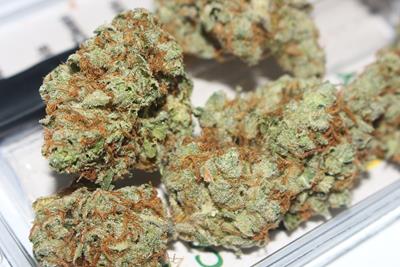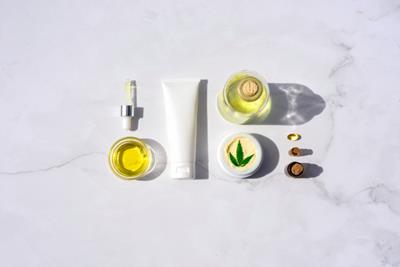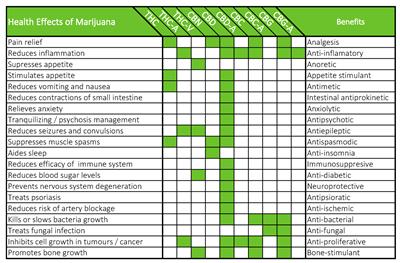
Monday January 11, 2021
By Erin Hiatt
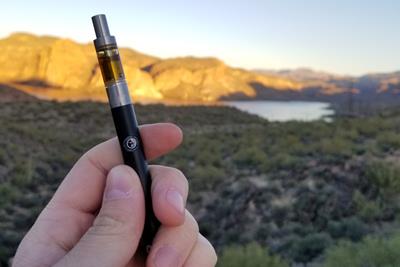 Health/Science
Health/Science
According to cannabis market research firm Grand View Research, cannabidiol, or CBD, is one of the most commonly used cannabinoids for medicinal applications for the treatment of pain, anxiety, and depression, stress relief, acne reduction, and the alleviation of cancer symptoms. This market is only expected to grow, at a compound annual growth rate (CAGR) of 22.2 percent in the next four years.
While cannabis consumers of all kinds are attracted to CBD because of its healing and ameliorative properties, there may be another crucial factor driving interest in the compound, especially among consumers who may be a little leery of THC’s intoxicating effects: CBD will not get you high.
As researchers attempt to stay apace with the rapid expansion of the market, other cannabinoids lacking psychoactive effects have also come into focus, like CBN (cannabinol) and CBG (cannabigerol). The newest cannabinoid to step into the spotlight is closely related to the most researched and infamous cannabinoid of them all, Delta-9 THC. Even though Delta-8 is thought to be less intoxicating than Delta-9, should Delta-8 be thought of as a new, readily available normal for consumers?
Delta-8 THC, The Milder Weed
Dr. Peter Grinspoon, who is a primary care physician at Harvard Medical School and serves on the board of Doctors for Cannabis Regulation told Inverse that the molecular difference between Delta-8 and Delta-9 is small, but that difference may dictate how Delta-8 and Delta-9 bind to endocannabinoid receptors in the brain, thereby creating a less euphoric and intoxicating effect. Delta-9 binds tightly to receptors, which may play a role in the anxiety, paranoia, headaches, and nausea that some feel when consuming high potency cannabis.

Delta-8 on the other hand, binds more loosely, providing a high that many report leaves them feeling “high” without the negative side effects that come for many consumers. Though we’re still in the very early stages of learning about the effects of Delta-8, many consumers report that they experienced fewer psychoactive effects, appetite stimulation, and more energy than when vaporizing Delta-9. The National Cancer Institute found that Delta-8 “exhibits lower psychotropic potency” than Delta-9, so those uncomfortable with feeling high may find Delta-8 more agreeable.
The Availability of Delta-8 THC
Though both cannabinoids have similar characteristics, one area in which there is stark difference is legality. Delta-9 THC is a Schedule I substance, defined as having no currently accepted medical use and high potential for abuse. Delta-8, on the other hand, seems to be following the murky path laid out by CBD, which continues to inhabit a legal grey area.
The 2018 Farm Bill made hemp and its cannabinoids legal - as long as the percentage of THC comes in at 0.3 percent or below. However, in August, the DEA (Drug Enforcement Administration) moved to add Delta-8 to the list of controlled substances, though that directive is still under consideration. Needless to say, for Delta-8 proponents this creates - just like CBD - a confusing quandary for consumers and a morass for hemp farmers.
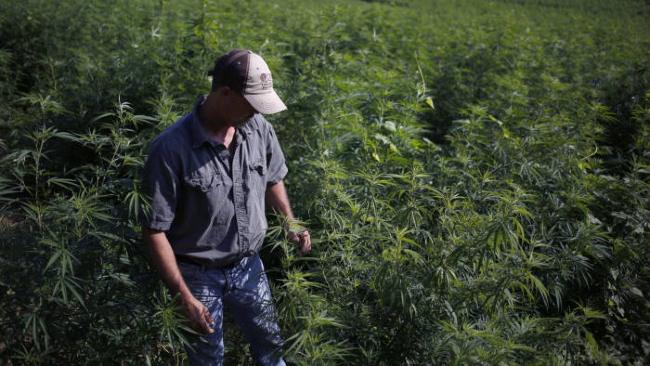
So, is Delta-8 legal? It depends. If you live in a state with a legal cannabis marketplace, check in at your local dispensary or headshop to see if they have the less intoxicating cannabinoid in stock.
For those not living in legal states, you’ll have to try your luck online. That being said, cannabis products purchased online (unless from a state-legal outlet) are often of lesser quality because they do not have to undergo the rigorous testing and quality controls that licensed sellers are held to. As with CBD, it makes good sense to familiarize yourself with the company and seek out lab results and a certificate of analysis.
Are Mild Cannabis Products Here to Stay?
Nonetheless, cannabis consumers are often eager to give these new, less familiar cannabinoids a try. Grinspoon warns that Delta-8 is in danger of acquiring the same reputation as CBD - a purported cure-all yet to be backed clearly by thorough research. “I guess, I hope that with Delta-8 THC people stick to the science and don’t try to oversell it,” Grinspoon added.
If CBD is any indication though, people will probably still try. However, the popularity of the new cannabinoid, and CBD’s proven success on the market seems to portend a new segment of milder products within the market that’s here to stay. Along with that presence comes stability, making it more likely for more research and regulation down the line.
Have you tried any delta-8 THC products yet? What was your experience like? Share your stories below.





